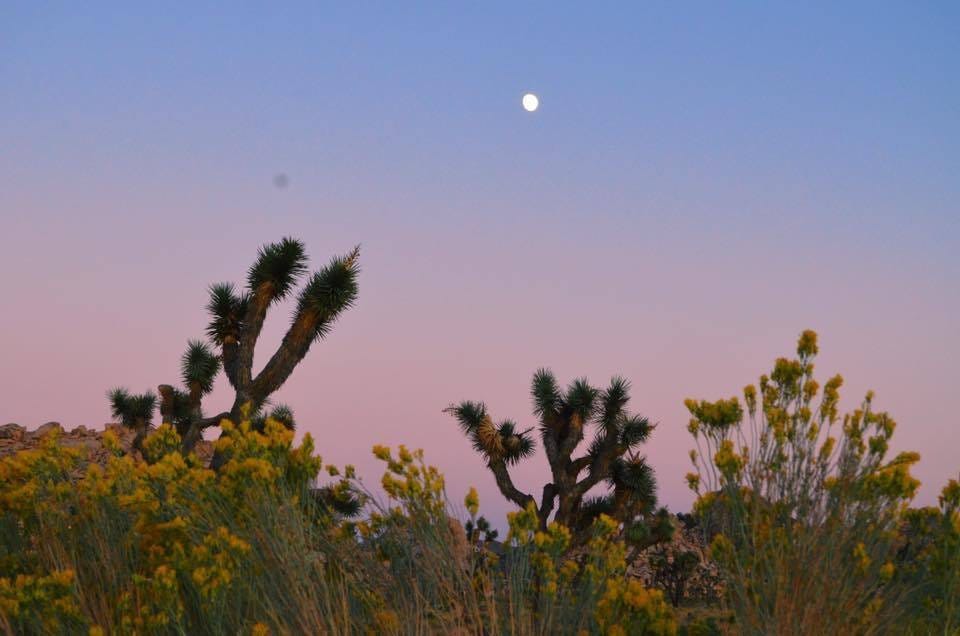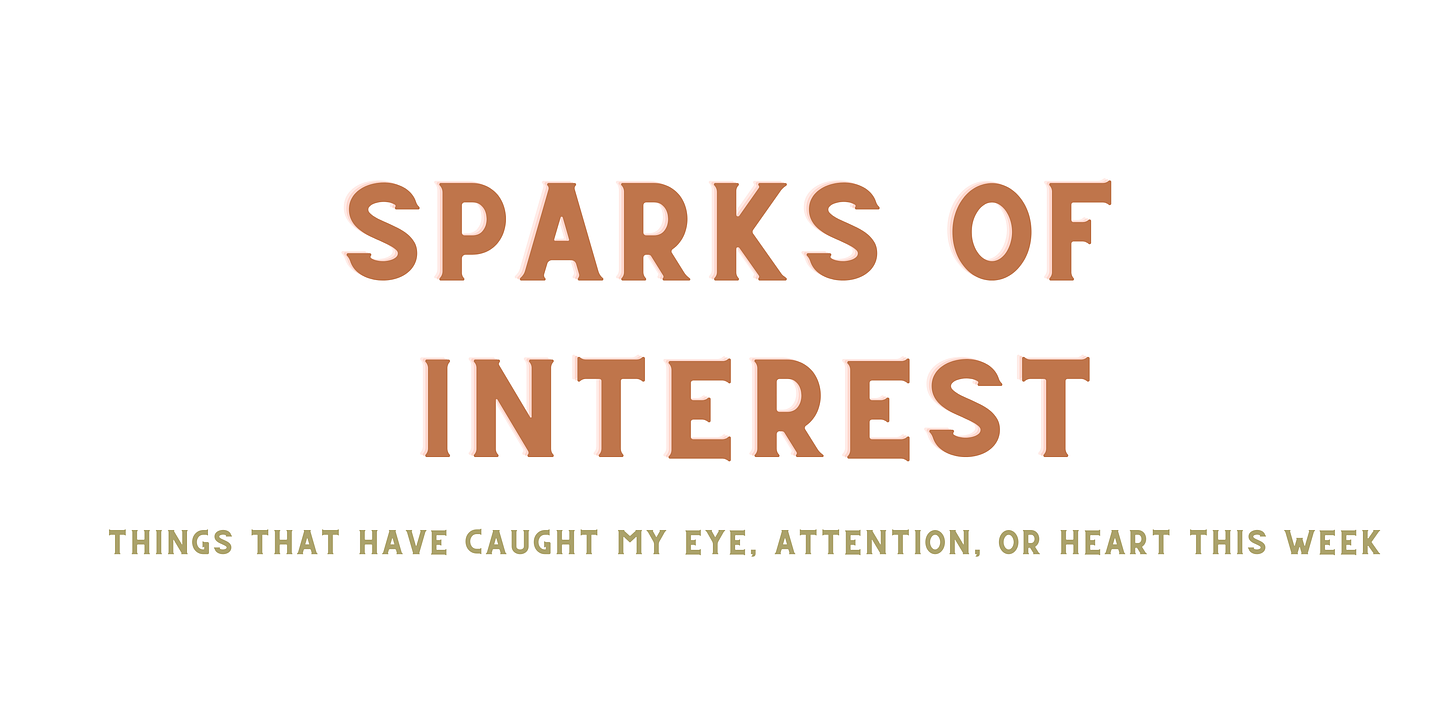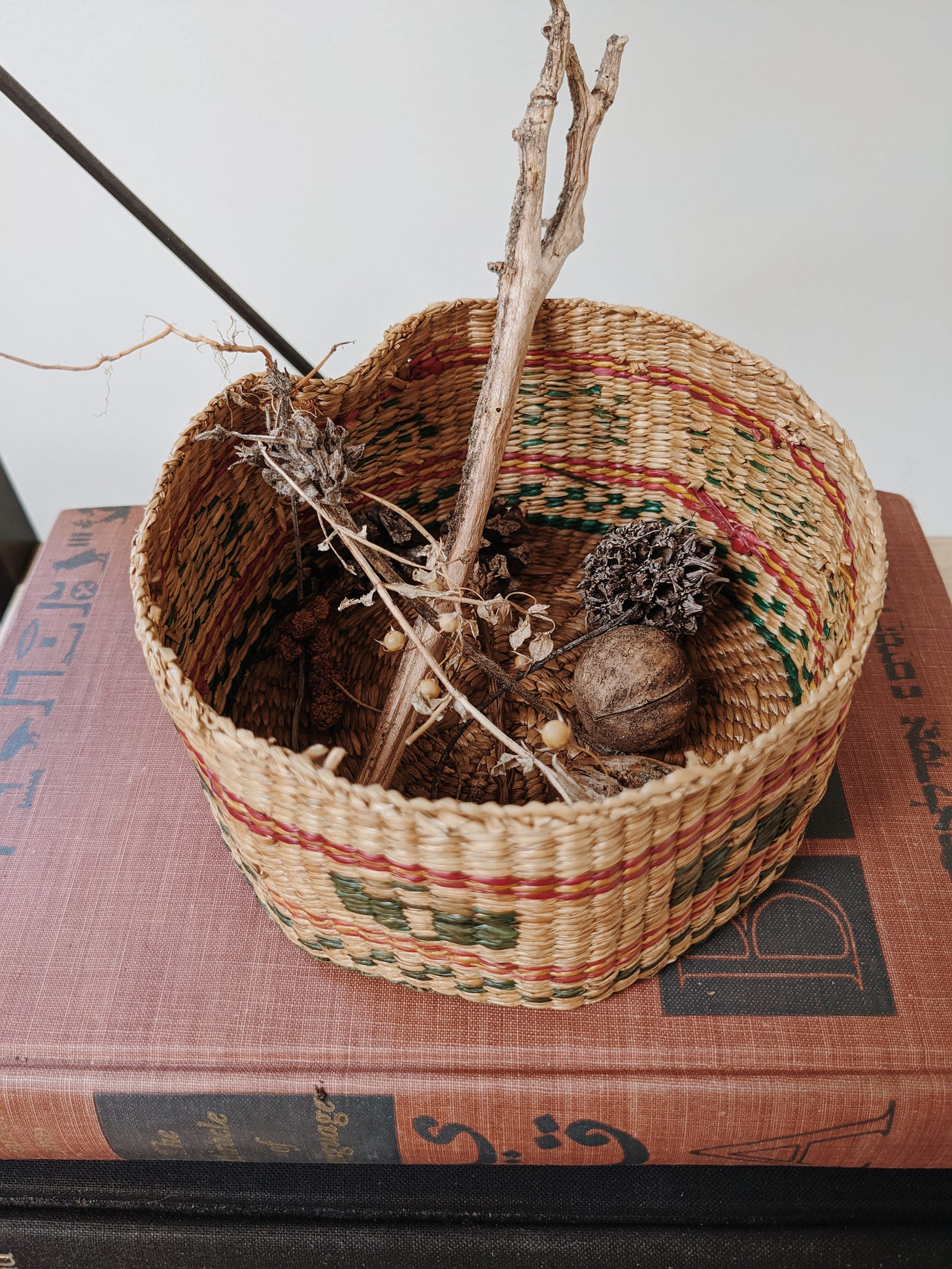Human Stuff is a free weekly newsletter. If you’d like to create reciprocity for my work and also access my monthly audio recording & journaling guide, I invite you to become a paid subscriber. Your support means so much.
Please feel free to share parts of this newsletter that connect with you on social media or send to someone you love.
A song I’ve been enjoying:
I am not thriving.
I’m not my “best self”. I’m not gaining traction on my goals or moving in a continuous upward trajectory. I’m not earning more money than ever, or “glowing”, or the most successful/in shape/happy I’ve ever been. I’m looking forward to the next season where those things feel true, but right now they just aren’t. I imagine there are lots of you who might relate — who might not be thriving right now, whatever that means.
I’ve realized the problem isn’t that I’m not thriving, though; the problem is when I at times believe I’m supposed to be thriving — that if I’m not thriving, something must be off. I must be behind. I must not be doing enough. We create so much more pain for ourselves when we assume we’re falling short of our own impossible expectations — for not being able to thrive 100% of the time, no matter what.
And part of what creates this problem is the society we live in — not ourselves. The society we live in associates thriving with capitalistic standards of success, with individualistic models of growth, and with ideas about humanity that go against our natural rhythms, our nature, our ebbs and flows.
In actuality, it makes sense to not be thriving in the first year of motherhood, as my body and brain adjust in a massive way. It makes sense to not be thriving in an ongoing pandemic (no matter how beyond it our world is). It makes sense to not be thriving in the middle of my least favorite season (sorry, summer lovers). It makes sense to not be thriving in the middle of a deep identity shift, a complete metamorphosis, an integration of what feels like a whole new life. It makes sense to not be thriving while the world around us is holding so much tension, so much chaos, so much challenge. Having seasons of not thriving isn’t a personal failure. It’s a part of being human in a world that isn’t set up for our continual thriving.
We are quick to morph everything into an individual flaw in need of fixing — to turn what is natural and understandable into something wrong with us — to internalize what is out of our control by desperately trying to force and control everything about ourselves and our personal lives.
I wonder, though, if allowing ourselves to not thrive is actually what thriving is. I wonder if thriving isn’t about being our best selves or living our best lives, and is more about embracing our full selves, which inevitably includes the parts that are just barely trudging along. I wonder if meeting ourselves in the trudging is thriving. If trusting our off-kilter path is thriving. If letting the tears fall is thriving. If letting the grief out of our throat is thriving. I wonder if thriving means allowing our humanity to exist, always, no matter what.
When I really think about it, I’m also thriving by the typical standard of the word in a lot of ways. I’m embracing space and change, new ways of being and seeing. I’m collecting a whole lot of joy and childlike wonder along the way. I’m getting visions for new offerings and feeling the weightlessness of having separation from career as identity. I’m connecting to nature and creating a nourishing home and enjoying quality time with people I love. I could go on.
I share this because in our society, we often default to black and white, either/or, all or nothing thinking. We assume if something in our lives is hard, everything must be hard. We assume if we’re struggling in some ways, we must be struggling entirely. We assume if we’re having a slower, more grief-filled season, our whole life must be small and filled with grief. This is why allowing not-thriving seasons is important: it breaks up this binary way of seeing ourselves and the world. It makes room for all parts of us to exist and take up space. And, it allows us to know we aren’t just one thing, which becomes an anchor when we need to remember the parts of us that are doing great.
Can seasons of dormancy, even when they last longer than we want them to, be valuable, too? Can phases of life that contain less, that are smaller, that feel more like a push than an expansion, be part of us instead of something to try and elevate out of? Can chapters of our story that are boring, that are missing something, that are unsure or grief-filled— can those chapters be part of the whole instead of something to try and erase? Can phases of not thriving be a path toward deeper alignment with our true selves instead of something to try and bypass?
These are questions I’m exploring in my own life recently, during this season of things looking vastly different than I’m told they should. And it has given me so much more capacity to have compassion for this season I’m in — to hold myself with grace and kindness — to practice giving myself permission to not be somewhere else, in someone else’s life, but to be present in the not-quite-thriving reality of my own. And I’ve learned a lot from allowing this season to be what it is, perhaps for the first time.
A few notable lessons from a season of not thriving:
We can be not thriving and be at peace. We can be not thriving and find joy in the mundane. We can be not thriving and feel deeply connected to the life we have. Not thriving doesn’t need to mean not living fully. Perhaps it’s part of it.
The way we treat ourselves during seasons of not thriving often leads to more difficulty than the not thriving itself. How we meet ourselves in the harder seasons — how we view ourselves for having them — can shift enough to where we don’t forget who we are outside of those seasons.
There is no award for never struggling, for never being honest about the things that are challenging, for never being impacted by the factors of life that make things more difficult sometimes. There is, however, an internal reward for allowing what is to be what is — an internal reward for acceptance, for embracing our tougher seasons, for being honest about what we’re moving through. And that internal reward is the embrace of the entirety of ourselves.
No one else needs us to never struggle; it sets us up for failure when we assume everyone around us expects us to forge forward without setbacks or slowdowns or seasons of not thriving. It’s often only us who hold that expectation. And, if there are people who do expect that of us, it isn’t our weight to hold.
When we stop thinking we should be “through it by now” or “over it by now” or “better by now” or “ thriving by now”, we allow the season we’re in to actually take the shape it needs to take in order to morph into something different. Letting go of control creates the movement we think only control creates.
The image we often get of not thriving is bleak, devoid of goodness, lacking in aliveness. In reality, not thriving can coexist with many other components of life, of being human, of existing: we can not thrive in some areas and be experiencing deep growth in others. Again, it isn’t all or nothing.
There is so much wisdom to be gleaned in not needing to understanding why everything is happening, but instead trying to simply connect to what we are feeling in our bodies. To not always need to know the story in order to access a softening in our cells. To not always need more processing, more analyzing, more knowing — in order to allow more feeling, more seeing, more being.
People will hold stories about us no matter how we’re doing — whether we’re thriving or not, outwardly succeeding or not, living our “best lives” or not. It is a gift to let them — to not make their stories something to try and control through our behavior — to remember what is ours and what is not.
Presence dissolves binary thinking.
An old, mean voice may arise within you sometimes during seasons of not thriving. That voice might tell you to get it together, or figure it out, or stop being where you are. You can honor that voice by hearing it, and you can honor yourself by not believing it.
If you find yourself in a season of not thriving, I hope you can remember all the parts of you that are actually doing great. I hope you can honor your not-thriving parts as also worthy of being seen, of being held, of deserving compassion. I hope you can weave your non-thriving self into your life so as to allow it to move you, rather than hold you captive. I hope you can trust the season coming next. And I hope you can give yourself permission to let your humanity exist in the meantime, knowing all of it is part of the whole of you — that all of it is the very thing that makes you whole.
△ This book that beautifully connects us to nature, plants, and cyclical living
△ This talk from one of my greatest teachers, Tara Brach; her wisdom continues to teach me so much.
△ This review of my book (on Audible) made me laugh — you can’t win ‘em all!
△ Living a small and delicious life:
△ Wisdom from Maggie Nelson
△ Collecting seeds from my yard for an upcoming ritual
△ I think about this poem a lot.
With care,
Lisa
PS. Thank you deeply for your messages, comments, and emails on last week’s Sunday Letter. It touched my heart to connect, to be heard, to feel a sense of togetherness as we move through this Human Stuff in our own ways. I so appreciate your presence here, your kindness, and your willingness to let my words be a mirror to your own humanity.









Lisa, what a beautiful reflection on thriving. Lately I’ve been musing on what I perceive to be a collective sense of entitlement to a “perfect” life - how we have bought into the ideology of a good life being a “perfect” life (no sickness, no struggle, no hardship, financial prosperity and “success”, popularity, being able to control/fix everything, all our trauma resolved and immunity to all future triggers - on and on it goes) and how our lives only feel valuable when we deem them “good” in this light. There really is something incredibly freeing in meeting ourselves where we are with kindness and compassion rather than shaming ourselves for a lack of perceived thriving. The pressure of a “best life” leaves no room for growth and discovery or space for “imperfection” and perpetuates systems that harm, ostracize and oppress. (And I believe this is a big reason why we are still in this pandemic.) Oh boy, I could unpack this for daaaaayyyyyssss.
I am grateful for your honest reflections and how they invite us to take pause and reevaluate - and how they spur us on to live aligned to that which gnaws at us deep within.
Thank you, Lisa. Thank you for saying what most of our aching souls need to hear.
I am slowly shifting out of survival mode, I am still there a lot, but am having moments of ... I don't know what to call it, but a different space. It's not survival mode but it certainly is not thriving mode either, it actually feels really empty. It feels empty, but better because I'm not in crisis, but not better because why am I here? What am I doing? Why am I doing?
My external world is actually, what most people would call, thriving; I'm a PhD candidate, research assistant, adjunct lecturer, and serve tables for a side hustle, I exercise regularly, eat relatively healthy, and do my best to have a "social life". But my internal world is at battle, there is a hurricane, volcano erupting , earthquake, apocalypse occurring in my body and mind. I am in extreme suffering.
But this contrast between my internal and external world creates such a weird and confusing space. In a sense, I should be doing really well, but I'm not in so many ways because of past trauma.
A year ago I had an attempt. A year ago I was so very lost and afraid. I am still so very lost and afraid and still very much in pain. But, I have been able to meet myself in a way I've never been able to before, there is a level of acceptance with some things I have never had before, and I have forgiveness for myself that I didn't even think was possible. And maybe you're right, maybe this evidence of acceptance and meeting myself where I am at is more of what thriving is. Maybe having forgiveness for myself and allowing it, is thriving. If not thriving, it is certainly growth.